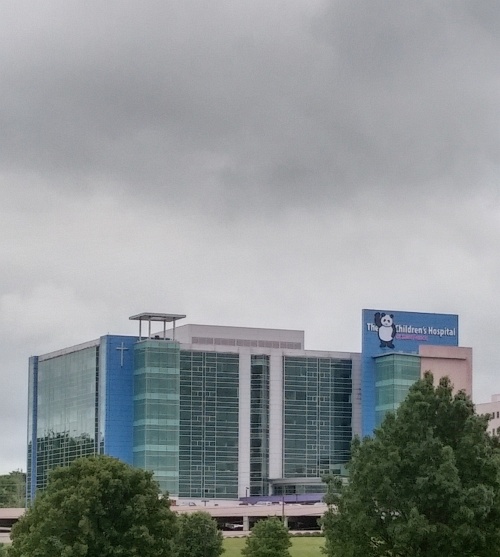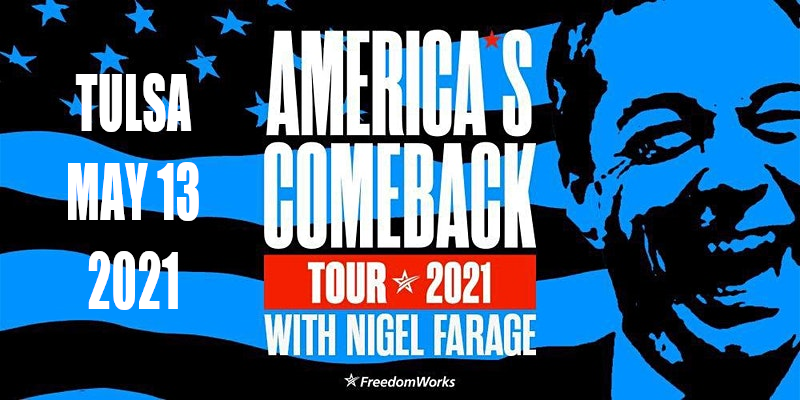Tulsa: May 2021 Archives

Saint Francis Health System is revoking full parental access to the medical records of teenage minors (ages 13-17), as of June 15, 2021, according to a notice sent to parents this week.
On Wednesday, May 19, 2021, I received the following message in MyChart, the web portal to the online medical records system used by Saint Francis Health System and many other hospital networks across the country. The message was from "MyChart System Administrator" and at the end of the message was the notice, "You cannot reply to this message."
Thank you for using MyChart to manage your child's medical care. You currently have proxy access to view your child's MyChart account. On June 15, 2021, current proxy access for minors ages 13 to 17 will automatically transition from full access to limited access. Your teen may choose to give you full access after they activate their MyChart account ("MyChart Teen Account").Supporting Your Teen and Their Health Privacy
We encourage parents and guardians to discuss all healthcare conditions and questions with your teen. We also encourage you to partner with your teen and provide the guidance and autonomy necessary to teach your teen how to manage their own health into adulthood.
Why is this change being made?
Oklahoma law allow minors to consent to certain treatment and, in some circumstances, control related health information.
How does my teen request their own MyChart Teen Account?
Teens aged 13 to 17 can request their own MyChart Teen Account using their personal email address. THEY SHOULD NOT USE A SCHOOL EMAIL ACCOUNT. Saint Francis Health System patients can request activation online at www.saintfrancis.com/mychart, or during a visit to their Warren Clinic provider's office. OSU medicine patients can activate their MyChart account at their next clinic visit or by calling their primary care provider office.
What happens when a MyChart Teen Account is activated?
Once the MyChart Teen Account is activated, the teen can choose the parent's level of proxy access to the MyChart Teen Account. The options include:
- Full Access — Parent or guardian has full access to manage their teen's healthcare through MyChart.
- Restricted Access — Parent or guardian has access to the following functions in MyChart:
- request regular and e-visit appointments for the teen;
- request refills;
- review and print allergy and immunization information;
- message the teen's care team; and
- view and pay bills associated with the teen's account.
- Access Revoked — Parent or guardian has no access to the MyChart Teen Account.
What capabilities will my teenager have in a MyChart Teen Account?
They will be able to view test results, send a message their healthcare provider and schedule office visits. They will not have the ability to request prescription refills, schedule a virtual visit, or use telehealth functions.
Will I be able to access Private Messages in the MyChart Teen account?
If your teen provides you with proxy access to their MyChart Teen Account, you will be able to continue to see messages and replies between the teen and their care team. However, your teen can make messages and replies confidential by unselecting those with proxy access each time they start a new message.
Who should I contact if I have questions?
Parents and/guardians should contact their teen's primary care provider office for questions or additional information.
There is no contact information online for the Saint Francis Health System corporate office. The phone number for the legal department is 918-494-2483. I called and no one answered; I left a voicemail asking for a call back with an answer to the question, "What is the Oklahoma statutory provision behind this change?" I encourage other parents to do likewise. I have heard that St. Francis staff received an email about the change, stating simply that teens would be able to create their own MyChart accounts for access to their records, but saying nothing about revocation of access for parents.
So who made the decision? To whom do we appeal? The Saint Francis website isn't very helpful, but it does include a list of the Board of Trustees and Board of Directors.
Board of Trustees
- William K. Warren, Jr.
- The Most Reverend David A. Konderla
- John-Kelly Warren
- Judy Kishner
- Jeff Smith
Board of Directors
- John-Kelly C. Warren, Chairman
- Judy Kishner, Vice-Chair
- Mike Case
- Mike Cooke, J.D.
- Ashley Gable, M.D.
- Jake Henry Jr.
- Rev. Gary Kastl
- William R. Lissau
- Charles McEntee, M.D.
Bishop Konderla is the bishop of the Roman Catholic Diocese of Tulsa and Eastern Oklahoma. In his pastoral letter, "God Builds a House," Bishop Konderla names "Strengthing the Family and the Domestic Church" as the first of three priorities for the diocese.
The family is the foundation of all human society and is currently threatened by forces that could destroy or deform its nature and mission. While assisted by schools and parish programs, parents are irreplaceable as the primary educators of their children.
In light of that eloquent statement, I would expect Bishop Konderla to object to any effort to alienate children from their parents by blocking access to information that parents would need to guide their children on the path of life. So I emailed the bishop at the address on his webpage (bp.d.konderla AT dioceseoftulsa DOT org) in hopes that he would help reverse this policy.
Dear Bishop Konderla,
I am writing to you in your role as a trustee of the Saint Francis Health System to ask for your help regarding a policy change that undermines a parent's God-given responsibility to keep watch over their children, both body and soul, a policy change that will be used by teenagers to conceal sexual activity, abortion, drug use, and gender transition from their fathers and mothers.
Yesterday, parents of teenagers across northeastern Oklahoma were notified by Saint Francis Health System that as of June 15, 2021, they would no longer have full access to their children's medical records, but they would have to receive their 13- to 17-year-old children's consent to continue this access. The notification, sent through the MyChart online medical records website, is attached.
The anonymous message claims that "Oklahoma law allow [sic] minors to consent to certain treatment and, in some circumstances, control related health information." The message does not cite the relevant statutes. There is no signature, no indication of the person or board authorizing this change, no opportunity for parents to object. Parents are directed to "contact their teen's primary care provider office for questions or additional information."
I suspect that this change is being driven by administrators who are not in accord with Christian teaching, whose ethics have been formed by the Sexual Revolution, who believe that children should be free to experiment with sex, gender identity, and intoxicating substances free from the oppressive oversight of Mom and Dad. Parents already must contend with educational, mass media, and social media forces who want to alienate children from their parents; a Christian medical network should not add to that burden.
Certainly there will be situations in which a parent should not have access to his or her child's medical records at any age, e.g. where a child has been removed from a parent's custody for abuse or neglect. But surely the default should be access, with steps taken to remove access only in exceptional circumstances.
I urge you to exercise your spiritual authority as bishop and your corporate authority as trustee, for the sake of Oklahoma families, to identify those who are responsible for this policy and to seek a reversal of it.
Yours sincerely,
Michael D. Bates
Tulsa, Oklahoma
Increasingly, the idea of the family is under attack from both government and private institutions, who prefer to treat people as autonomous, atomized individuals, a world in which all interpersonal relationships are temporary, contingent, and negotiable. HIPAA means my wife and I have to file paperwork at every office and clinic to ensure that we can deal with every medical issue as a family; the default assumption is that we want to hide things from each other. FERPA means that Mom and Dad are expected to pay for college, but aren't entitled to know if Darling Son or Darling Daughter are keeping up with their studies.
Government and society used to assume that, unless proven otherwise, parents are loving and competent and therefore ought to direct their dependent child's medical and educational path, which requires being fully informed. Laws like HIPAA and FERPA assume that Mom and Dad are tyrannical or nincompoops or both and must be kept at bay to enable a young person to flourish. There are, of course, exceptional cases, where an abusive parent has had parental rights terminated or where a child has been placed in foster care because of abuse or neglect, but public and corporate policy increasingly treats these situations as the default; enabling normal parental involvement requires extra steps to be taken.
To expand on something I wrote in my letter to Bp. Konderla, the impetus behind this appears to trace back to the Sexual Revolution and the Psychodelic Sixties, the idea that a person's true self can only emerge through sexual and chemical experimentation. Societal restraints on this experimentation, such as guilt or embarrassment a child might feel if parents were aware of what the child is doing, are oppressive, so schools and doctors must provide cover to enable children true freedom to experiment. Accordingly, these same people believe it necessary that any negative medical or psychological consequences must be addressed privately, hidden from parental scrutiny. What a contrast to the traditional approach, in which societal institutions recognized the value of sexual continence and sobriety, joined with parents in proclaiming the dangers of sexual and chemical experimentation, and cooperated with parents to reduce opportunities for experimentation, and shame, guilt, and embarrassment served as powerful deterrents to foolish behavior.
 Nigel Farage, described as the most consequential British politician of our time for his leadership of Brexit, the successful, 27-year effort to extricate the United Kingdom from the regulatory chains of the European Union, will be speaking in Tulsa on Thursday, May 13, 2021, at 6:30 p.m. The visit is part of America's Comeback Tour, a cross-country series of events organized by FreedomWorks. Farage's Tulsa appearance is being presented in conjunction with the Tulsa 912 Project, a grassroots group that grew out of the Tea Party movement. Tickets are free, but seats must be reserved in advance through Eventbrite.
Nigel Farage, described as the most consequential British politician of our time for his leadership of Brexit, the successful, 27-year effort to extricate the United Kingdom from the regulatory chains of the European Union, will be speaking in Tulsa on Thursday, May 13, 2021, at 6:30 p.m. The visit is part of America's Comeback Tour, a cross-country series of events organized by FreedomWorks. Farage's Tulsa appearance is being presented in conjunction with the Tulsa 912 Project, a grassroots group that grew out of the Tea Party movement. Tickets are free, but seats must be reserved in advance through Eventbrite.
Dercy Teixeira, grassroots coordinator for FreedomWorks, says that the group invited Farage to deliver a positive message that will re-energize the conservative grassroots across America. "A lot of conservatives are feeling disillusioned, thinking 'What's the point?' We're bringing on Nigel to tell them you can't give up now. Maybe we're down in the first half, but we have the second half still ahead of us, especially with the midterms coming, and then the 2024 presidential election." America's Comeback Tour draws on the sports analogy of rallying at half-time for a come-from-behind victory in the second half.
Teixeira sees similarities between America's Tea Party movement and the Brexit movement in the UK, each starting from little pockets of the grassroots frustrated with the political status quo. The British political establishment dismissed the Brexit movement and Farage, its most visible figure, as worthy only of ridicule, but through positive messages, Farage and his colleagues were able to keep activists motivated, pressuring the politicians toward the UK's formal departure from the EU on January 31, 2020.
As someone who closely followed the long march of Brexit and toasted its realization with a pint at our local English pub, I am delighted that Nigel Farage will be coming to speak here in Tulsa. His example of cheerful perseverance in the face of ridicule, attacks, and hostility from the political and media establishment to accomplish this nation-shaping goal is the encouragement that American conservatives need right now.
 The Brexit story began when Conservative PM John Major signed the 1992 Maastricht Treaty, which set what had been a free-trade community on a trajectory to become a centralized, bureaucratized European super-state that would extinguish British sovereignty and self-government. In response, Farage joined with others to found the United Kingdom Independence Party (UKIP) to push for UK withdrawal from the EU. The party's presence and early successes pressured the major parties to keep Britain out of some of the worst aspects of European integration, like the Euro single currency and the borderless Schengen Area.
The Brexit story began when Conservative PM John Major signed the 1992 Maastricht Treaty, which set what had been a free-trade community on a trajectory to become a centralized, bureaucratized European super-state that would extinguish British sovereignty and self-government. In response, Farage joined with others to found the United Kingdom Independence Party (UKIP) to push for UK withdrawal from the EU. The party's presence and early successes pressured the major parties to keep Britain out of some of the worst aspects of European integration, like the Euro single currency and the borderless Schengen Area.
Farage led UKIP to victory in the 2014 European Parliament elections, the first time a new party had won a national election in over a century. The result that pushed the Conservative Party to promise in the 2015 General Election to give the British people a referendum on leaving the European Union. Although the political and media establishment were united in support of remaining in the EU, Farage's pro-Leave forces were victorious in the 2016 Brexit referendum. But it soon became clear that Teresa May's Conservative Party government intended to deliver a Brexit in name only that would forever shackle the UK to European regulation. In response, Farage founded the Brexit Party, which won the 2019 European Parliament election less than six months after its establishment, leading to May's resignation, an early general election, and a relatively clean break with the EU in January 2020.
Farage's Brexit Party succeeded by adopting new methods of grassroots organization, communication, and mobilization geared to the Digital Age. Rallies across the country, streamed over social media, drew growing crowds and amplified enthusiasm. The party reached across old party lines to unite around a common cause. I found the rallies compelling listening, as the party's candidates for Member of the European Parliament (MEP), most of whom had no political background, talked about why Brexit mattered to them, their professions, and their communities. Each rally was capped with a rousing speech from Farage that never failed to bring the crowd to its feet. (MORE: See the bottom of this entry for a couple of examples of Farage's rousing speeches in front of audiences both friendly and frosty.)
Teixeira described Farage as "a perfect ambassador" for FreedomWorks, an organization that empowers grassroots activists to impact politics. "Many world figures appear personable on screen, but Nigel actually likes interacting with people," going pub-to-pub during his campaigns to interact directly with voters.
In this video from the start of the tour in Florida, Nigel Farage explains what he hopes to accomplish as he travels across America:
Also speaking at the Tulsa event will be FreedomWorks Director of Policy Sarah Anderson, and John Tamny, FreedomWorks VP and Director of FreedomWorks' Center for Economic Freedom. Tamny is author of the recent book, When Politicians Panicked: The New Coronavirus, Expert Opinion, and a Tragic Lapse of Reason, about the economic devastation wrought not by COVID-19, but by the political overreaction to it.
In addition to his visit to Tulsa, Farage will speak in Perrysville, Ohio, Palm Beach, Chicago, Milwaukee, Grand Rapids, Pittsburgh, Cincinnati, Dallas, San Antonio, Phoenix, and Jackson, Wyoming. Tulsa is the only Oklahoma stop on America's Comeback Tour.
MORE:
After the jump, some videos showing Farage's geniality and humor, both in the face of hostility (his final speech as an MEP before Britain's formal departure from the EU) and surrounded by supporters (at a Brexit Party rally).